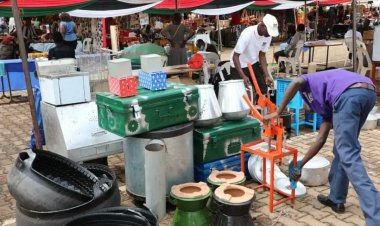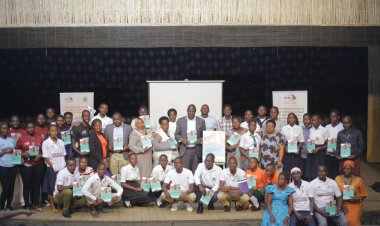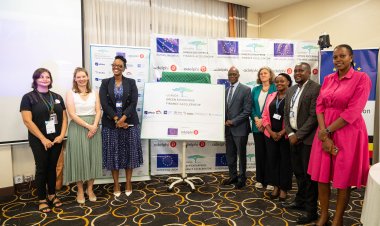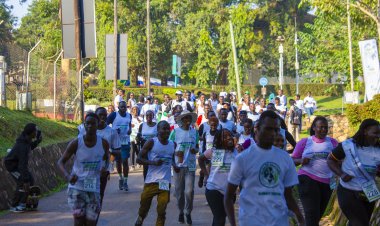The 13th Annual Indigenous Foods and Seeds Fair Set For This Week
Agro ecology is defined by the Food and Agricultural Organisation of United Nations as a holistic and integral approach that simultaneously applies ecological and social concepts and principles for the design and management of sustainable agriculture and food systems.
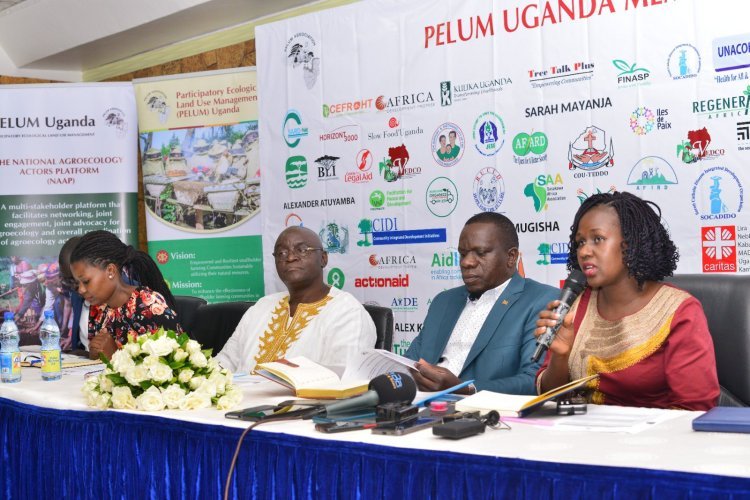
Participatory Ecological Land Use Management (PELUM) Uganda has announced the return of the annual traditional foods and seeds fair set to take place from 26th – 27th this October at the Hotel Africana People’s space.
This will run under the theme; “Nurturing healthy, nutritious and resilient food systems for all.”
While announcing the national agro-ecology week of action, the country board chairman of Pelum Uganda Dr. Christopher Kyeswa highlighted the significance of traditional foods and the need to be preserved.
This is aimed at showcasing the significance of Uganda’s indigenous and traditional foods and seeds in fostering health and sustainable systems for now and the future.
"Traditional food systems contribute towards the achieving of food security and improved nutrition and promote sustainable agriculture."
In the same vein, week long activities have been lined up which include; the 5th national agro-ecology actors symposium to be held on Tuesday 22nd October under the theme, “accelerating a just, inclusive and resilient food system through agro-ecology.
The other event will be the 2nd Agro-ecological market systems expo (AMASE) scheduled for Wednesday 25th October under the theme; “Advancing agro-ecological entrepreneurship and synergies for sustainable market development.
This, he says will provide an opportunity for the public to interact with a very wide range of known businesses and entrepreneurs who have built resilience in advancing agro-ecological businesses and markets amidst the very dynamic sector space.
Kyeswa also noted that this agro-ecological week presents unique opportunities for the public to gain access to the various cousins from the different regions of Uganda like malakwang, malewa, luwombo e.t.c
He added that, “Scaling up agro-ecology in Uganda is critical towards realization of SDGs most especially SDG 2 on zero hunger that requires a transition towards more sustainable food systems with more social economic benefits.
George Bob Sunday, the national focal point person for ecological organic agriculture in the ministry of Agriculture, animal industry and fisheries noted that Ugandans ought to think outside the box to develop new and innovative sustainable land use practices.
“Land is a fixed resource, the population of the country and elsewhere is increasing, we ought to think of new innovative sustainable land use practices at will conserve nature, enhance sustainable food systems and a system that will create resilience.”
“Other than the desire for safe food, agro-ecology is going to be a pivot point for ensuring biodiversity conservation. I’am happy to inform you that the ministry has drafted the national agro-ecology strategy draft which will bring to order all actors in agro-ecology” George added.
“Currently we are standing at 565 hectares under agro-ecology and we have over 600,000 certified organic farmers by the ministry.” He added.
Elizabeth Kabakoyo, the leader of the world food forum representing the agro-ecological entrepreneurs noted that as farmers they face challenges which include among others market for their agro ecological products, chemicals that destroy their crops among us but she’s confident that Pelum Uganda and other players are coming in to help indigenous farmers.








